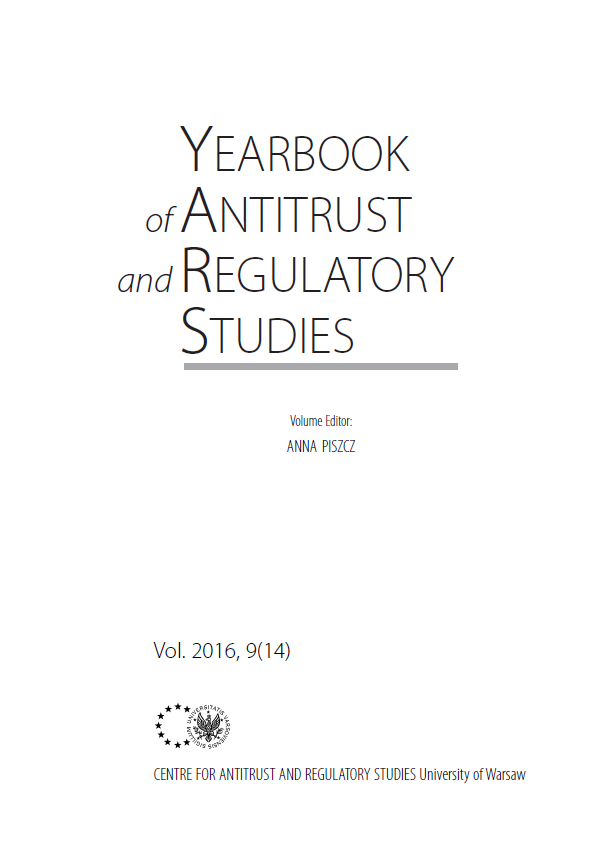The Principle of Liability in Private Antitrust Enforcement In Selected European States in Light of the Implementation of the Damages Directive into the Polish Legal System
The Principle of Liability in Private Antitrust Enforcement In Selected European States in Light of the Implementation of the Damages Directive into the Polish Legal System
Author(s): Dominik WolskiSubject(s): Business Economy / Management, Commercial Law
Published by: Wydawnictwo Naukowe Wydziału Zarządzania Uniwersytetu Warszawskiego
Keywords: private antitrust enforcement; litigations; principle of liability; burden of proof; presumptions; implementation; Damages Directive;effectiveness;
Summary/Abstract: In the vast majority of European countries, private antitrust enforcement falls under general rules of civil law. One of the issues to be discussed in relation to this type of litigation is the principle of liability, which exists in the given legal system, and its presumed impact on private enforcement. This problem has been debated in the course of the implementation works on the Damages Directive into the Polish legal system. A discussion on the principle of liability has taken place at least twice in this context. First, the issue was considered by the Civil Law Codification Commission and expressed in its Assumptions behind the Draft Act on complaints for damages caused by the breach of competition law. Subsequently, the principle of liability was assessed again at the reconciliation conference held at the Ministry of Justice. This is but a part of a broader discussion about the relationship between the rule of liability existing in national laws being applied to private enforcement cases and EU law as well as limitations arising from the latter. After outlining this interplay, the paper will briefly introduce solutions adopted with respect to the principle of liability in the context of private enforcement in selected European countries. The selection is not random, despite the fact that a limited number of countries has been analysed – eight including Poland. These include the most advanced EU Member States when it comes to private antitrust enforcement (such as the UK, Germany or the Netherlands), along with less developed examples (such as Italy or France), and even underdeveloped countries when it comes to the number and popularity of private antitrust litigations (such as Lithuania and Poland). This sort of analysis paints a relatively comprehensive picture of the adopted solutions in relation to the principles of liability governing private enforcement cases in Europe. The same is true for the issue of the burden of proof and presumptions/binding power in civil proceedings of decisions issued by competition authorities. Furthermore, what seemed to be crucial for the drafters of the Damages Directive, this sort of analysis makes it possible to formulate certain conclusions with respect to the relationship between the effectiveness of private enforcement in a given State and the adopted principle of liability. The final conclusions understandably focus on the Polish example, that is, the implementation of the Damages Directive into the Polish legal system.
Journal: Yearbook of Antitrust and Regulatory Studies (YARS)
- Issue Year: 9/2016
- Issue No: 14
- Page Range: 69-95
- Page Count: 27
- Language: English

